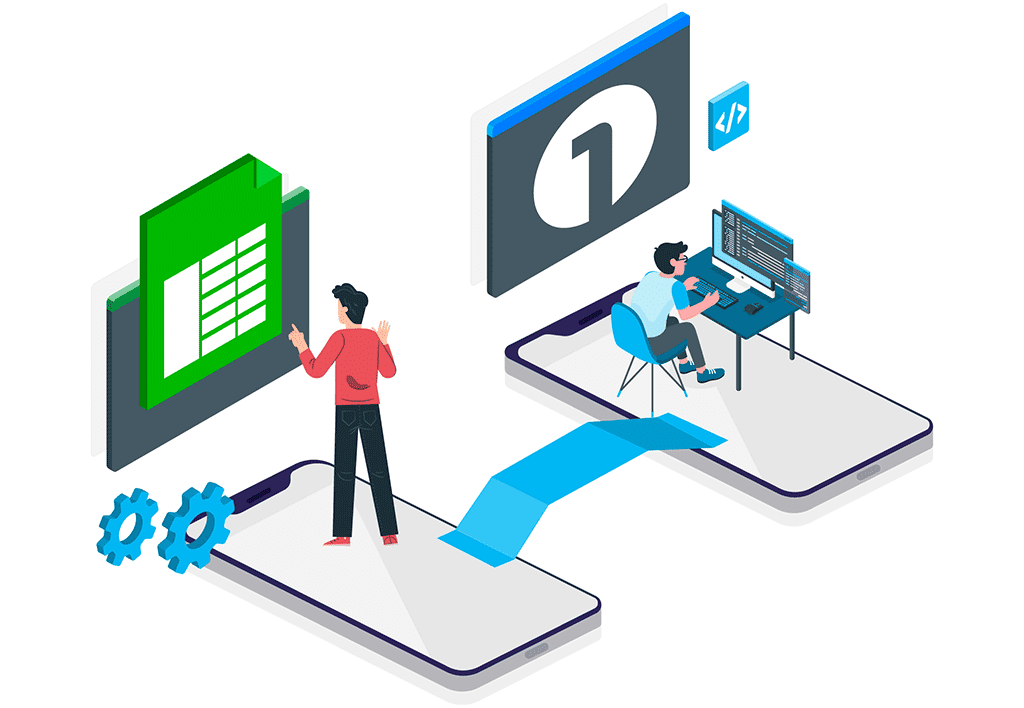5 types of business software that you must have.
6 min read | Updated on Nov 3, 2022

From small Organizations to enterprises, most of them are on the path of digital transformation and automation to increase their efficiency. With the advancement of technology, budget-friendly small business software can be developed easily without coding or you can simply use ready-to-use apps. This article will help you to learn about essential apps that are required for managing your business.
Here we will mainly cover three critical points.
1. What tools do you need for business management?
Essential tasks include project management, sales and marketing, hiring top talents, team communication, handling accounts and finances, and more. To that effect, we have a handy list of different business applications for start-ups and small businesses.
2. How much should would a business software cost you?
Cost is one of the main concerns for a lot of start-ups and small companies. Here we will also cover how to save up to 90% of the cost by choosing the right tool for your team.
3. Benefits of using one system over scattered apps.
Letting your team all collaborate in one system has multiple benefits compared with using scattered business apps here and there.
Here are the 5 types of business apps you will need.
1. Project & Task Management
Business always needs project management software to deliver projects on time and make everything organized, especially if multiple projects are in progress. Cloud project management software provides an overview of all the projects, helps manage tasks, time scheduling, risk mitigation, and cross-team collaborations.
No matter whether your team is working onsite or remotely, you need to track what work needs to be done and when, which team member the task is delegated to, and more. Project planning is critical for your team’s success. There is definitely a cost to your team’s productivity and efficiency if they manage the projects using spreadsheets or relying on back-and-forth emails.
For small businesses, a Project Management app is necessary. With features like Kanban board, progress tracking, visualization of your tasks in time-sensitive view, collaboration, dashboard and reporting, the app is increasing the efficiency of all your teams.
2. Sales Management
A Sales Management solution is crucial for improving the performance of your sales team. By making your sales process organized, your sales team can easily prioritize tasks, schedule demos or showings, track follow-ups, and work with other teams more efficiently and collaboratively.
Automating your sales processes adds big value. Not all businesses are the same. Being able to customize what you want to manage and how the information should flow during your sales process in your sales management software is critical. Set up notifications when new orders come in. Achieve total visibility leverage dashboard and reporting. Easily manage and exceed performance targets with pipeline tracking and analysis.
Getting your team onboard with a Free trial or even a free version of a good Sales Management app can be a good start. Be clear about what your sales team is trying to manage, and choose a tool within your budget.
3. Employee Management
Relying on manual processes to manage employees can become an administrative burden and have substantial security concerns. Adopting a modern Employee Management tool helps HR managers to manage employee data efficiently and safely.
For example, the app can facilitate recruitment and onboarding. It should easily allow employees to submit an application form, create personal profiles, and upload photos and attachments. Another example is managing leave and absence, where workers can easily submit their time-off requests and have all the records adequately tracked and analyzed using a dashboard and reporting.
You do not just need software to manage your workforce information. It can also care for your sales, marketing, projects, tasks, and operations. You should connect the employee management app with other apps they use in one digital solution to calculate their commission and delegate tasks.
4. Asset Management
For any business, having an efficient Asset Management system helps monitor and manage their critical assets and allows equipment and tools to be accurately tracked. For each vital asset, assigning a digital identity will give you a clear history of the utilization and maintenance over time.
You need a modern way of visualizing your asset record where you can add details, attach photos and videos, and upload invoices and documents. The best tool allows you to schedule repairs or contact vendors directly in the application without going elsewhere. For each event, link all the equipment and tools it needs and maintain the records in the cloud.
5. Issue Management
An easy-to-use Issue Management tool helps product engineers and product owners identify, analyze, prioritize, and track issues in the entire issue-solving lifecycle. Choose the platform with a suitable complexity for your team, and do not overwhelm your team with unnecessary and complex features.
Issue solving is always a shared task. People who identify it, people who author it, people who can solve it, and people who will test it should all work in the same system with delegated roles and tasks. Teams should rely on well-designed automated workflow and processes rather than manual notification.
How Codeless ONE can help?
Codeless ONE provides a rich selection of business applications. Instead of having scattered and siloed software, you can use Codeless ONE’s workspace suite so that all your teams can work collaboratively under one roof. Here are some of the benefits of using Codeless ONE apps:
- App marketplace with 100+ pre-made business applications in a wide range of domains.
- All apps are fully customizable, from objects and fields to interfaces and processes you want to manage in your apps.
- One Super App for your entire team. You can create dedicated, interconnected app portals for your different groups and seamlessly synchronize the information flow and processes.
- You can build your app from minutes to hours for your unique use cases effortlessly.
- Substantial cost savings: 60-90% compared to buying different apps for your team. The more apps you need, the more money you can save.





